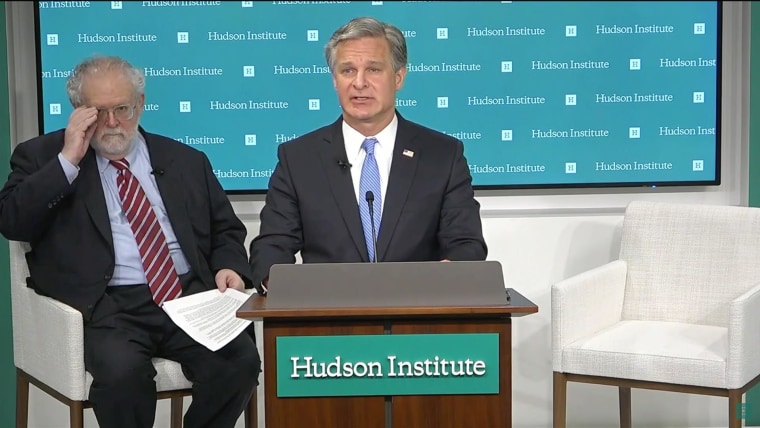Relations between the United States and China have hit their lowest point since diplomatic ties were re-established in 1979, China’s top diplomat said Thursday.
Foreign Minister Wang Yi also said China had “never intended to challenge or replace the U.S.,” adding that the world’s two largest economies should “explore ways for peaceful coexistence.”
The conciliatory tone contrasts with what Western officials and experts see as China’s increasing assertiveness — flexing its muscles just as the U.S. is seen as stepping back, in spirit at least, around the world.
Critics accuse Beijing of destroying Hong Kong’s autonomy, pursuing expansionism in the South China Sea and committing mass human rights abuses against its Muslim Uighur population, charges that China has dismissed as “hypocritical” attacks on its sovereign rights.
President Donald Trump has accused China of covering up the early stages of the coronavirus while railing against what he sees as unfair trade practices and intellectual property theft.
Wang suggested that the U.S. and China should “meet each other halfway” and pursue “win-win cooperation” on global issues. But most of his suggestions for improvement were aimed at Washington rather than Beijing, which he said had a “highly stable and consistent policy toward the U.S.”
In a speech posted to China’s foreign ministry website, he said the White House’s China policy was shaped by “ill-informed strategic miscalculation” and “McCarthyist bigotry” — referring to Sen. Joseph McCarthy, whose anti-communist investigations in the 1950s have made him synonymous with baseless ideological witch hunts.
“We also have the right to reject all the bullying and injustice imposed on China,” Wang said.
The generally mollifying tone of the speech served as a marked contrast to rhetoric that has accompanied a marked deterioration in relations between the two countries in the past few years.
Though Trump has praised China and its president, Xi Jinping, at times during his presidency, he has also reserved some of his harshest words for the country, blaming it back in May for the “mass worldwide killing” wrought by the virus, and referring to the pandemic as “kung flu.”
This week, Secretary of State Mike Pompeo condemned “China’s destruction of Hong Kong,” which he described as “Orwellian.” While FBI Director Christopher Wray said that China was “engaged in a whole-of-state effort to become the world’s only superpower by any means necessary.”
Beijing denies all of that, often accusing the U.S. and others of interfering in its affairs, unfairly singling it out and holding it to double standards — particularly when it comes to Trump’s own coronavirus record and the police response to the George Floyd protests.
There has been harsh rhetoric from Beijing, too.
In the past week, Chinese foreign ministry spokesman Zhao Lijian has called White House trade adviser Peter Navarro a “habitual liar and rumor-monger” and accused Pompeo of spreading “absurd stories and fake news” over China’s treatment of its Uighur population. Zhao dismissed Wray’s remarks as “deep-seated Cold War mentality and ideological bias.”
There have been flashpoints with other countries. This week the Chinese embassy there accused Australia of “gross interference” after Prime Minister Scott Morrison gave a five-year extension to visa-holders from Hong Kong, and suspended his extradition treaty with the city.
That followed a similar suspension by Canada, and New Zealand said it too would review its relations with Hong Kong.
Wang’s more ameliorative message came during a forum of Chinese and American think tanks, a discussion that also included a pre-taped speech by Henry Kissinger, the former secretary of state whose visits to China in 1971 preceded the reopening of diplomatic relations between the two countries after decades of silence.
He suggested Washington and Beijing compile three lists: areas where they can cooperate, issues they need to discuss, and topics where there is little chance of agreement.
“I hope the U.S. will develop more objective and cool-headed perceptions about China, and a more rational and pragmatic China policy,” he said.
Reuters contributed to this report.
Dawn Liu contributed.













